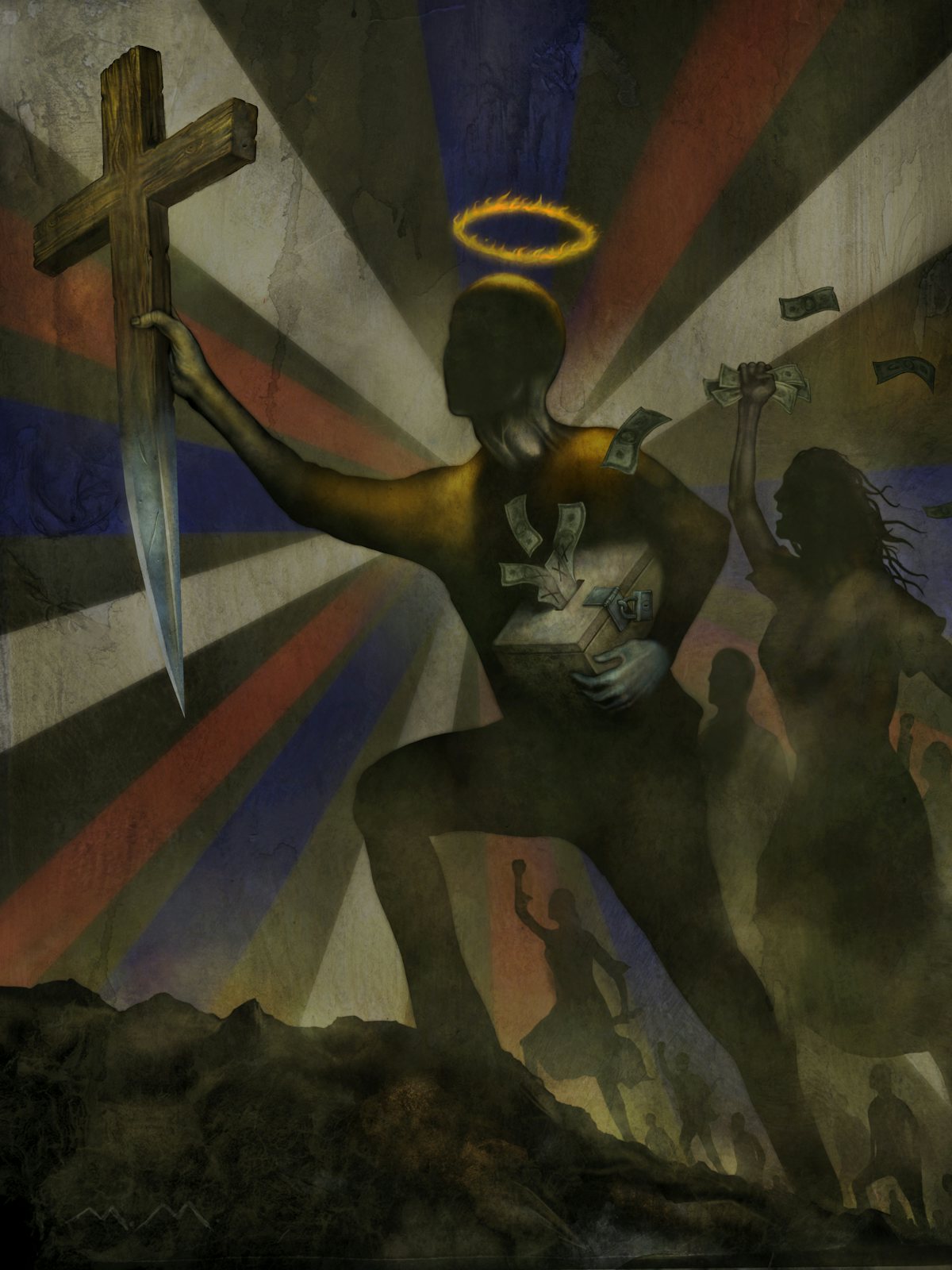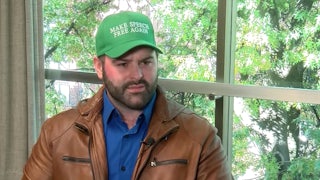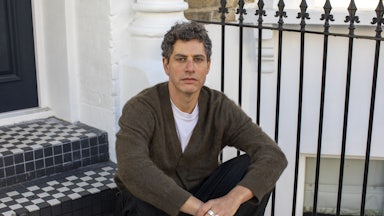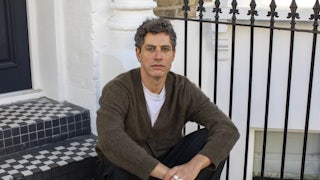On a stretch of verdant land just north of Sycamore Canyon Road in Montecito, California, the homes of the merely rich give way to the homes of the truly rich. There, within shouting distance of the 18,000-square-foot home that Prince Harry and Meghan Markle purchased from a villainous Russian oligarch, you will find the residence of Joan Lindsey and her husband, James B. Lindsey, an heir to a Pepsi fortune. “It’s part private park, part sanctuary,” a write-up in Forbes pants. “Altogether, it’s a compound for the ages.” Mira Vista—an estate of this caliber naturally has a name—was recently listed for sale at $72.5 million.
But Mira Vista is something more than a home. It was also listed as the address of the James and Joan Lindsey Family Foundation. A search of the foundation’s public reports appears to turn up, proportionally speaking, little of the kind of community-centered philanthropy characteristic of other wealthy locals. Instead, the records show a vast and steady flow of contributions to leading organizations in America’s Christian nationalist movement. Every year over the past decade, the Lindsey Foundation has donated hundreds of thousands of dollars to organizations such as the Family Research Council, Focus on the Family, WallBuilders, and a faith-based media company called Mastermedia International, and lesser amounts to other groups like the Council for National Policy, a networking group for movement leadership.
“We are a Christian country. And the Founders were—definitely—and our founding documents were written under prayer each day of the writing,” Joan Lindsey has said. On the eve of the 2020 election, she announced that “this election will either preserve faith’s sacred place in our country or destroy it.”
From 2019 to 2020, the Lindsey Foundation funneled at least $500,000 to a new organization, Faith Wins, intended to mobilize pastors at conservative churches to bring out the pro-Trump Republican vote. Faith Wins is part of a Lindsey-backed coalition called The Church Finds Its Voice. In many respects, the Lindseys’ investment in Faith Wins and The Church Finds Its Voice follows a long-standing pattern in the Christian nationalist movement of backing projects to turn America’s network of tens of thousands of conservative churches into a powerful partisan political machine.
But there is also something novel in the Faith Wins project, and it sheds much light on the direction of the movement in the aftermath of the Trump presidency. Unlike pre-Trump get-out-the-pastors projects, Faith Wins has made concerns about “elections integrity” a central part of the message for its target audience. The pretense is that this is intended to shore up public confidence in elections. The reality is that the group is consciously helping to lay the foundations for the next iteration of the Big Lie. If Trump runs again, and if the Big Lie works next time around in securing him the presidency, Faith Wins and its collaborators will have played a critical role in making it happen.
Chantilly, Virginia, sits on the edge of Fairfax County, a prosperous, D.C.-adjacent region pocketed with residential subdivisions. On a Thursday morning in late September, at the Community Baptist Church, a midsize church built in the 1990s, a crowd of about 50 individuals, mostly pastors, most of them men, breakfasts on Chick-fil-A sandwiches. A Republican candidate for the Virginia House of Delegates is there to work the room, as is a representative of the campaign of Glenn Youngkin, the previous co-CEO of the Carlyle Group who went on to upset Terry McAuliffe in the 2021 Virginia gubernatorial election.
Chad Connelly bounds onto the stage bursting with energy. “We are in the middle of doing over 40 cities, just like this, in 16 states between Labor Day and Thanksgiving,” he says breathlessly. He rattles off some statistics from an earlier leg of his “American Restoration Tour”: 89 meetings with 2,965 pastors across the country who command flocks totaling 741,000 potential voters.
A former chair of the South Carolina Republican Party and director of faith engagement under Reince Priebus at the Republican National Committee for four years, Connelly is both a political veteran and a key player in the Christian nationalist movement. He serves on the Council for National Policy, where he sits on the board of governors, and where Joan Lindsey is a Gold Circle member. The council was founded by Paul Weyrich, Tim LaHaye, and others at the dawn of the Reagan era. Today, it is the apparatus connecting the “doers and the donors,” as the father of Betsy DeVos’s husband, Rich DeVos, put it, of the Christian nationalist and conservative political machine.
“You’re about to hear a presentation that’s going to elevate your ability to understand what’s going on, and it’s also going to inspire you to say, ‘I’m not doing enough,’” Connelly says, his voice cheerful but firm. “Everybody you know needs to have voted. Everybody you know needs to go vote early. Every church you know needs to do voter registration. Every pastor you know needs to make sure 100 percent of the people in their pews are voting and voting biblical values.” As in most Christian nationalist gatherings, “voting biblical values” is a transparent euphemism for voting Republican.
Connelly happily makes clear that his work owes much to the generosity of Joan Lindsey and her family foundation. “Joan Lindsey just started talking to me about this,” Connelly tells the crowd. “So a couple years ago we really started this thing called The Church Finds Its Voice.” He nods. “If y’all have ever seen Christian leaders on television, Joan Lindsey’s likely trained ’em. She’s a media guru. An expert.”
There is a part of Connelly’s message, both here and in his social media presence, that will be familiar to anyone who has taken in a minimum dose of Christian nationalist rhetoric. “This is a crucial time in our nation’s history,” he says, striking the first chord in a well-rehearsed song about the existential necessity of electoral victory. “Is this our 1776 moment, or is it 1944?” he says. “I’ve never voted for a pro-death person. Never voted for anybody of any stripe that was OK with killing a baby in a mommy’s tummy.” In Christian nationalist circles today, every election is a contest against absolute evil, and the consequences of failure almost too dire to imagine.
Inevitably, the persecution narrative follows closely on the apocalypse narrative. At the height of the Covid-19 pandemic, Faith Wins wrote, “government leaders decided—in their flawed wisdom—that church gatherings were not ‘essential’ to society. You heard that right.” In religious right circles, Christian conservatives are often cast as the most persecuted group in American society and may soon be arrested for their beliefs.
The refrain of this familiar song contrasts dire circumstances in the present with the golden age of yore. “This place has been ordained by God,” Connelly said in a September 2020 podcast episode, “when the Founders determined that of course they were reading the Bible and they were believers of the word of God. And so America became unique and special because the Founders understood that the founding had to tie into God.”
As in most versions of the song, the transition from the Christian nation myth to radical free-market doctrine is seamless. According to Connelly, the second reason for America’s uniqueness and specialness “is the free-market system, which of course is God’s biblical economy.” Next comes the fear and loathing. “There’s a far left now that doesn’t believe in God, they’re godless completely. They believe the state is the supreme being,” Connelly says on the podcast. “It’s actually a godless, communistic, Marxist style of government.”
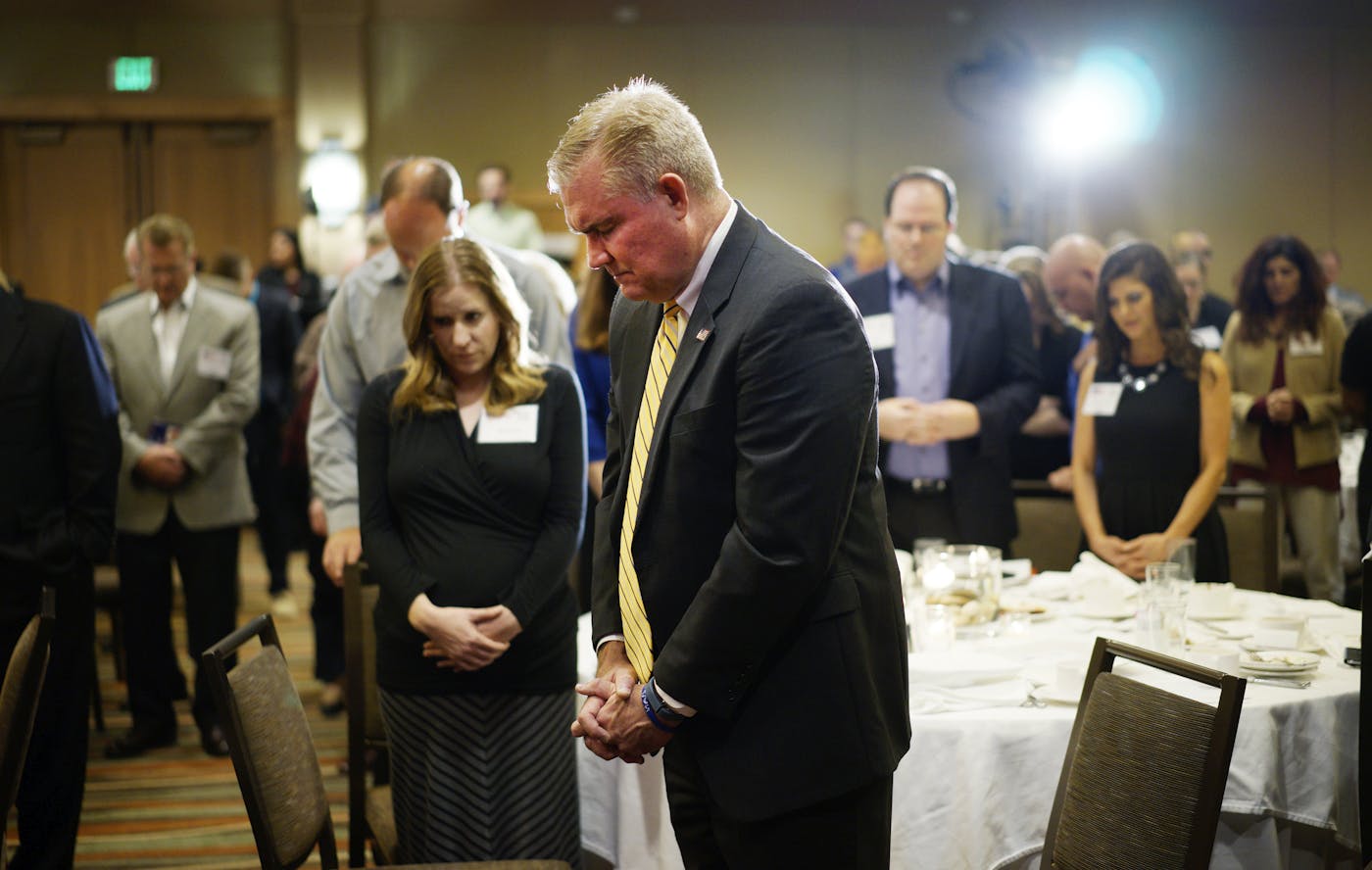
Within the Christian nationalist movement in general, there is little curiosity about the political opposition, and still less effort to understand it on its own terms. Democrats are simply—and sometimes literally—represented as demonic. “You are losing freedoms every day in this nation. They’re being taken away like crazy,” Connelly tells the Chantilly crowd. “The Constitution has been discarded and tossed aside very quickly. And when you lose the little freedoms, you already lost the big ones and didn’t even recognize it. And it’s happening at a record pace.”
The bottom line for Connelly—hardly surprising given his past as a Republican Party operative—is to harvest votes. More precisely, his goal is to get the pastors present to harvest the votes. The Faith Wins website encourages attendees of the events to take a “Faith Pledge,” which includes voting in the upcoming election, and instructs its people to “inform fellow Christians about issues that impact our faith and families” and “encourage fellow Christians to vote their values on Election Day.” Pastors are given a QR code, along with an online form, which lead to a suite of tools and messaging materials, including voter guides, voter registration resources, and videos they can use to activate their congregations.
Running through Connelly’s Chantilly presentation and his media appearances, however, is the new defining theme in the post-Trump era: “elections integrity.” The point, of course, is to convey the frightening but entirely unsubstantiated belief that vast plots are afoot to steal Republican votes. The same theme is also showing up in some of the newer state-level conservative organizations such as the Virginia Project, which describes its mission as “leading the charge to uncover evidence of election manipulation, irregularities, and voter fraud in Virginia,” and has referred to Democrats as “rats.” Vote early, the group’s mailings insist—because that way “your name is marked as voted and no one can claim to be you and steal your vote.”
Connelly hits all the key message points in his talk. “We cannot sit on the sidelines and let ourselves get kicked in the teeth, and guess what, it’s happening. Like November the fourth,” he says in Chantilly, alluding to the 2020 election. By “kicked in the teeth,” it is clear from his expression that he doesn’t mean that Trump was defeated; he means that Trump was cheated.
Following Connelly at the podium is Tim Barton, son of David Barton, founder of the WallBuilders organization and one of the Christian nationalist movement’s most influential activists. WallBuilders presents itself as “dedicated to presenting America’s forgotten history and heroes, with an emphasis on the moral, religious, and constitutional foundation on which America was built—a foundation which, in recent years, has been seriously attacked and undermined.”
In Chantilly, we are told that David Barton has taken ill, but his son Tim disposes himself in a manner that would make his father proud, offering the usual litany of Bartonesque half-truths and misrepresentations of U.S. history. America’s Founders were one and all “believers,” according to Tim Barton, and the Constitution comes straight from the Bible. And an Advanced Placement U.S. history course for high school students, Barton adds for good measure, is just liberal propaganda aiming to undermine America’s godly heritage.
Tim Barton is particularly keen to emphasize a certain, idiosyncratic aspect of Christian nationalist mythology. His father, David Barton, has long been obsessed with the image of America’s Colonial-era priests tearing off their robes, becoming soldiers, and leading their congregations out into military battle. He and WallBuilders created a group of activist conservative clergy called the Black Robe Regiment. “I can go down the list of dozens of pastors who led their congregations to oppose the British because they open fired on us, they declared war on us,” Tim Barton says. Referring to the battles of Lexington, Bunker Hill, and Concord, he adds, “Almost every one of these early battles, it was nothing more than pastors leading their churches in the battle.”
The concern with masculine military virtue, though always a part of the movement, has become a signature feature of the Trump and post-Trump era. For example, Tony Perkins, head of the Family Research Council, has recently formed a partnership with retired Lt. Gen. William Boykin, who formerly served at the Central Intelligence Agency and has played a role in nurturing Christian nationalist networks in the military and among “disaster relief” NGOs abroad. The pair have helped lead a men’s ministry called Stand Courageous to help men “make commitments that will move men closer to God’s good purpose and design—men who will Stand Courageous!” At Stand Courageous gatherings across the country, masculinity, patriarchy, and militarism are the name of religion itself. “We need men to be men, tough with compassionate strength, bent toward justice without compromise, locking arms and standing,” the group’s materials declare. “We need to be the men God created us to be; warriors for all that is right, true, and just.”
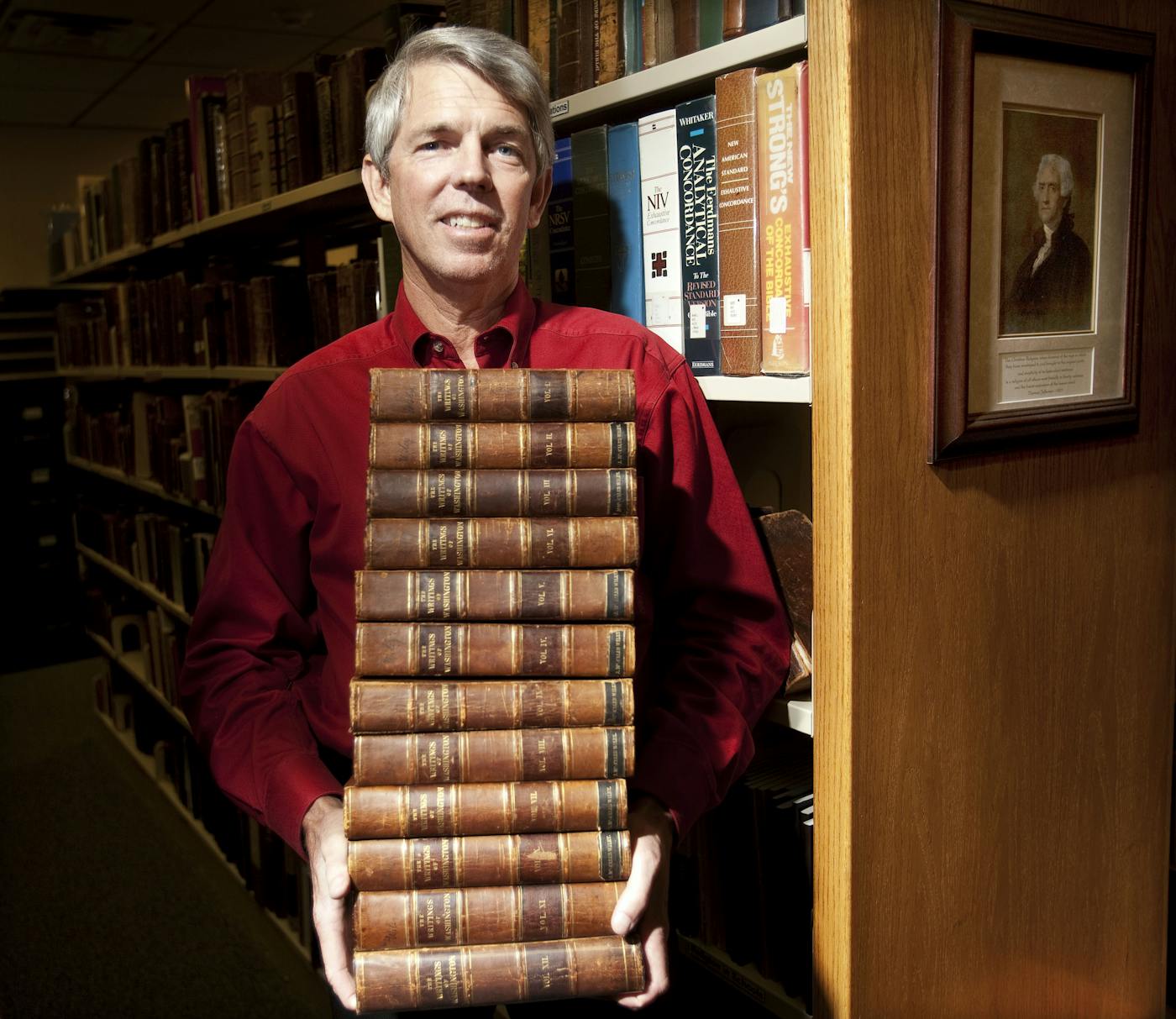
In the pre-Trump era, reporting on this kind of military rhetoric was inevitably greeted with a shrug and the excuse that it was, after all, merely rhetoric. After January 6, 2021, it’s difficult to hear it in the same way.
Before introducing the next speaker, Connelly urges members to steep themselves in Barton’s work and ideas, “So you can erase this nonsense we’re hearing out there from school boards, that nobody want God to be involved. That’s insane.” He continues: “This time we cannot sit back. I know y’all are doing a phenomenal job in Loudoun County of saying to the school board ‘enough’s enough.’” No doubt, Connelly is referring to the aggression and chaos that right-wing activists have brought to school board meetings in Loudoun County, Virginia, and beyond—a continuation of the right’s long-standing effort to undermine public education. “If you have not been to a school board meeting, you should be,” Connelly says.
Hogan Gidley, who worked as the deputy press secretary in the Trump White House and is represented as an “elections expert,” is the final featured speaker of today’s presentation. It is his presence on the agenda that brings the subtext of the meeting out into the open. “The Center for Election Integrity that Chad mentioned, it’s nonpartisan,” Gidley announces. Then he promptly offers the kind of misinformation that passes for wisdom in the Trumpist incarnation of the Republican Party. “You saw the stuff in Arizona, you’re going to see more stuff in Wisconsin; these are significant issues, and they can’t be dismissed out of hand anymore, the facts are too glaring,” he says.
Remarkably, he is referring to the circuslike, GOP-backed audit of votes in Arizona’s largest county, which, after discrediting itself with its bizarre antics, managed only to confirm that Biden won Arizona by more votes than previously thought. But the narrative of persecution is too valuable in activating the base to discard simply because it’s not true. “Any officeholder who allows it to happen should be held accountable, not to mention the fact that if we find someone committing fraud, they’ve broken the law, and they have to face a penalty as well,” says Gidley. In time, he launches into a well-worn conspiracy about the so-called cemetery vote. He says: “About two million dead people are listed on voter rolls right now.... We saw something new in this last election. Dead people didn’t just vote. They requested mail-in ballots, filled them out, and somehow got them into the drop box.”
Perhaps the most alarming aspect of the Chantilly experience is the crowd’s response. Murmurs of outrage punctuate the room as they seem to take in the misinformation. “This last year was rough … if you’re not at the table, you’re on the menu. You’ve gotta be in the room,” Gidley says, wrapping up his talk. On the way out, he takes a swing at other targets of right-wing grievance and ties them to the election fraud myth. “We’ve seen this with critical race theory,” he nods sagely. We are given to understand that perverting the minds of schoolchildren comes just as naturally to Democrats as stealing elections. But Gidley chooses to end on a high note: “I have never seen people more engaged than they are right now.”
The question that Trump’s attempted coup raises is how such a seemingly improbable event was even possible in the first place. During the Watergate crisis, after all, the country and both major parties united against a president whose alleged crimes would hardly have made the news over the past five years. How is it that in 2020 a president could refuse to accept a clear electoral defeat and face no consequences from his supporters, his party, or the legal system? How could so many people embrace such a transparent lie in the face of so much publicly available evidence? What could possibly motivate some members of Congress to exonerate an attack that not only was instigated to subvert the electoral process but also put some of their own lives in danger?
There are of course many overlapping explanations for the recent transformation of American political life. But the one that remains underappreciated in the present moment is the role of the Christian nationalist movement in establishing the necessary preconditions for the kind of coup that Trump attempted.
The essential precondition—more important than money, more important than media, more important even than willing liars in high public office—is the existence of a substantial base of supporters primed to embrace a big lie. Without leaders’ coordinated efforts to indoctrinate such a base, no lie can take hold. To create such a base, four key steps are necessary.
Step one is to build an information bubble within which the base may be maintained in a state of fact-denial. Much attention has correctly been placed on right-wing media in creating such a safe space for conservatives, but not enough attention has been paid to the conservative networks that supply the backbone of the Christian nationalist movement. Organizations like Faith Wins aim at pastors because they know that, for their target voters, pastors and religious communities are often the most trusted sources of information.
Step two is that this base must be conditioned to expect an imminent, cataclysmic event that will threaten everything it values. The apocalypticism and the persecution complex of the movement are perfectly suited to the task.
A third step is to transfer the perceived source of political legitimacy from democratic processes like elections to “higher” authorities that allegedly represent the “true” spirit of the nation. This of course is the device through which a minority of the country can come to believe that it has a providential role in ruling the whole. As Steve Bannon said at a rally in support of Glenn Youngkin, which was held on October 13 in Richmond, Virginia, “We’re putting together a coalition that’s gonna govern for 100 years.”
The final step is to do what Trump did starting in 2019: undermine at every opportunity public confidence in the results of the next election. In a sense, the coup attempt began on national television during the first presidential debate, when Trump made clear that he would not accept the results of the election if he lost. At Bannon’s rally for Youngkin, Trump called in and said, “We won in 2016. We won in 2020—the most corrupt election in the history of our country, probably one of the most corrupt anywhere. But we’re gonna win it again.”
In the immediate aftermath of the coup attempt that began with Trump’s refusal to accept defeat in November 2020, it appeared to many outside observers that the Christian nationalist movement faced a quandary. If they recognized the actual results of the election and supported the orderly transfer of power in our constitutional democracy, they would also have to acknowledge that “God’s President” was a liar and a plotter.
This proved to be a tough decision for at least a few religious right leaders, and the movement at first appeared to divide and waffle. The prominent evangelical pastor Robert Jeffress, for instance, acknowledged in an opinion piece for Fox News that it appeared Joe Biden would become the forty-sixth president of the United States and urged his followers to pray for him. A larger number, however, played along with the Big Lie.
Mat Staver, chairman and founder of Liberty Counsel, said, “What we are witnessing only happens in communist or repressive regimes. We must not allow this fraud to happen in America.” Michele Bachmann called Biden’s win a “delusion”; and Richard Antall, writing for Crisis magazine, a conservative Roman Catholic publication, likened reporting on Biden’s win to a “coup d’état.” In response to news of the election outcome, Kenneth Copeland laughed derisively. “Yeah, he’s going to be president, and Mickey Mouse is going to be king,” he said.
Trump’s attempt to subvert the certification of the Electoral College results by inciting an attack on the U.S. Capitol on January 6 at first appeared to amplify the quandary. Right-wing preachers, such as Greg Locke and Ken Peters, played a significant role in riling up the crowd in the days and hours preceding the riot, and Christian nationalist symbolism was all over the event. Movement leaders now had to decide whether their cause would get behind an armed attempt to overthrow the U.S. government.
From a distance of a year, though, it has become clear that the quandary was a mirage. Christian nationalist leaders are, if anything, even more committed to Trumpist politics than they were in January 2021. My Faith Votes, a faith-based voter mobilization organization, for example, launched an initiative called “Election Integrity Now.” The group issued a prayer guide with a seven-point plan for asking God “to protect American elections and deliver trustworthy results.”
At a minimum, the leadership of the movement is committed to denialism: There was no Big Lie, there was only honest concern for elections integrity misrepresented by the liberal media. This denialism, however, has proved to be merely a cover for the endorsement of Trump’s coup attempt and a commitment to anti-democratic politics.
The more blunt-spoken leaders of the movement have not hesitated to make the position clear. At the June 2021 Road to Majority conference in Kissimmee, Florida, an annual gathering of the movement’s key activists, strategists, and politicians, movement thought leader Eric Metaxas let it be known that the real victims of the January 6 event were the good people who ransacked the Capitol. Speaking of GOP leaders, he fired, in his words, “an arrow across their bow”: “Any Republican that has not spoken in defense of the January 6 people to me is dead. They’re dead.”
The right-wing political commentator and activist Dinesh D’Souza echoed the sentiment. “The people who are really getting shafted right now are the January 6 protesters,” he said in conversation with veteran religious right strategist Ralph Reed. “We won’t defend our guys even when they’re good guys.”
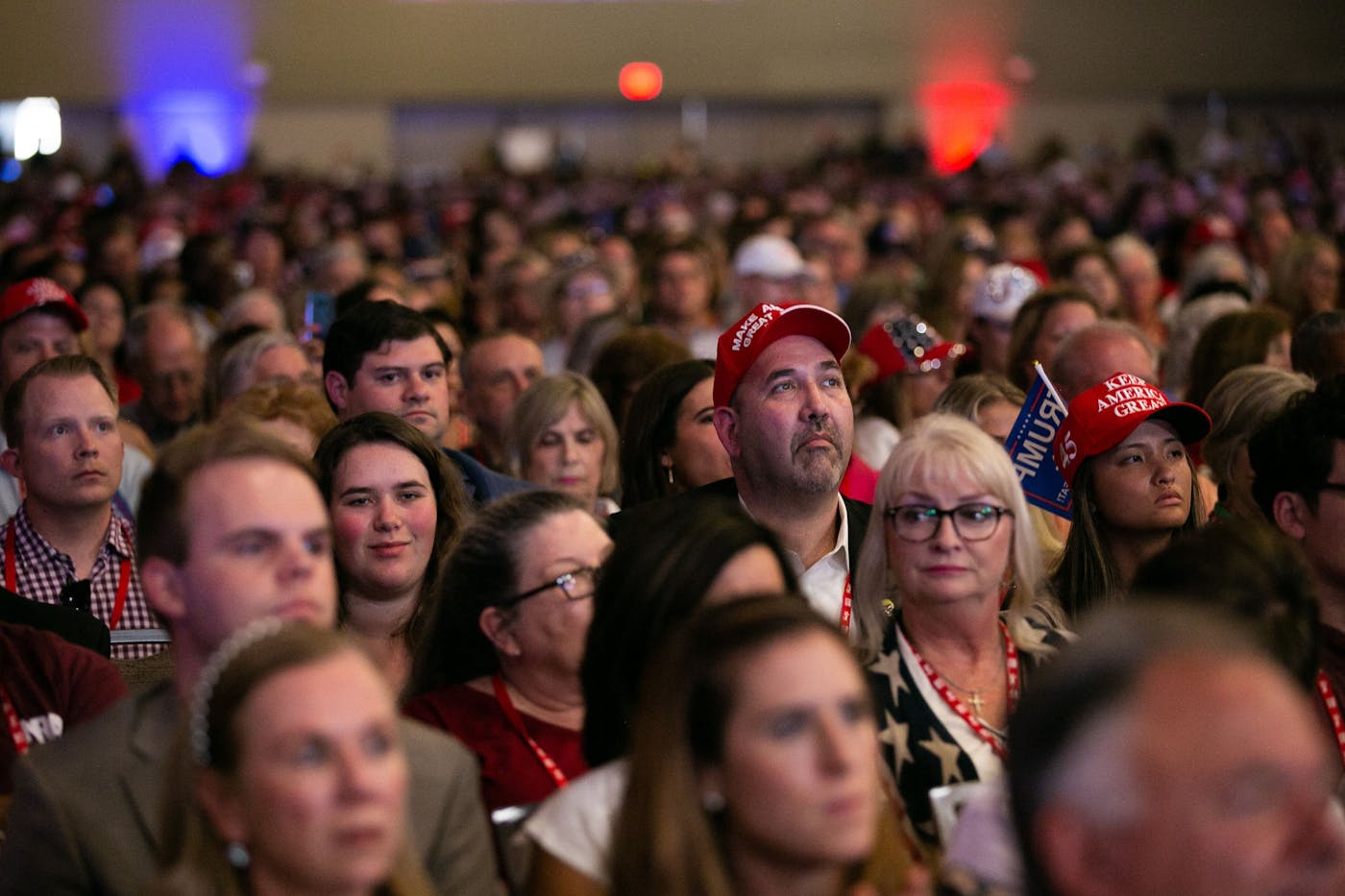
At the Conservative Political Action Conference that took place in Dallas in July 2021, January 6 was even reconceived as a possible Democratic plot. “[The Biden] administration is about tyrannical rule. They don’t want to follow the Constitution,” said Allen West, former chairman of the Republican Party of Texas, before he recast events driven by far-right extremists as bizarre and possibly Democratic conspiracies. “On January 6, the sergeant-at-arms had turned down, on behalf of the speaker, having the National Guard there to help protect the Capitol. Why did that happen? You think they were setting things up? Well, I do.”
The unspoken but operating assumption among leaders of the religious right at present seems to be that Donald Trump will run again for president in 2024. All appear to assume that, if he runs, he is likely to be the Republican nominee. They further seem to take for granted that he will spend much of the 2024 campaign complaining that the 2020 election was stolen and that 2024 is at risk of being stolen, too. It follows that his best shot at winning is to use that lie, if necessary, to steal the election for himself. Since the alternative, in their view, is to turn the nation over to the demonic Democrats for permanent destruction, these assumptions have locked movement leadership into a straightforward strategy in the run-up to 2024. They will prepare the rank and file to embrace the “Big Lie II,” as it were, in the hopes that this time it will work.
Will they succeed? We can’t know for some time, of course, but we will be able to get a better sense of the direction of our politics if we pay attention to the right sources. For most of the public, Big Lie II will play out in sound bites on right-wing television, Twitter feeds, and Facebook posts. But the part of the operation that matters more will take place out of view of most media. Movement leaders will leverage their organizations to prime the base for the Big Lie. Working through organizations like Faith Wins and The Church Finds Its Voice; through militant, often hypermasculine groups like Stand Courageous; or through “parent activist” groups such as Moms for Liberty and Parents Defending Education, they are cultivating a cadre of activists prepared to use the threat of disruption, chaos, and perhaps even violence to “protect” the desired election results. Because if God tells you in advance who is supposed to win every election—and then the other candidate wins—the only acceptable explanation is that the election was stolen, and stolen against the wishes of God.
As the event winds down, Byron Foxx, one of the evangelists touring with Chad Connelly, takes to the stage. “It is not time to be complacent,” he intones. “The church is not a cruise ship, the church is a battleship.”
As far as can be determined from her sporadic posts and the letters she signs as a member of the Council for National Policy, Joan Lindsey is proud of the movement she has helped to finance. Conservative pastors, she wrote on the website for The Church Finds Its Voice, are “already leading the way back to God’s way for us. A tremendous number of you have led voter registrations and are speaking truth about our duty as men and women of faith to support Godly governance.”
She may also draw comfort from the fact that she doesn’t have to look far to find an heir for her mission. Her daughter, Kielle Horton, a graduate of Pepperdine University, vice president of Lindsey Communications, and president of the Lindsey Foundation, seems equally invested in her parents’ agenda.
A blog post, cowritten by mother and daughter in August 2020, warned that “the opposition desires to rewrite our nation’s entire founding and purpose” and “has plans to destroy what we hold most sacred.” It seeks “the attempted eradication of the Church as we know it, likely replaced by the state.”
Joan’s son Patrick may be in line to carry the mission forward as well, though he presently seems preoccupied. His Twitter feed describes him as “Pilot of Gulfstreams & Porsche’s. Husband and Believer.” Responding to the recent news of the iconic New York City restaurant 21 Club’s pandemic-related financial woes, he tweets, “Daaaaaaannng!!! This place was so awesome. De Blasio & Cuomo can sukkit long and hard. #reopenNOW”
With multiple holdings in addition to their $72.5 million home, including stakes in Cal-Pepsi Inc. and the Pepsi Cola Bottling Co of Bakersfield Inc., the Lindseys are not likely to run out anytime soon of the money they need to promote “Godly governance” in the United States. Whether American democracy can outlast their good fortune remains to be seen.
